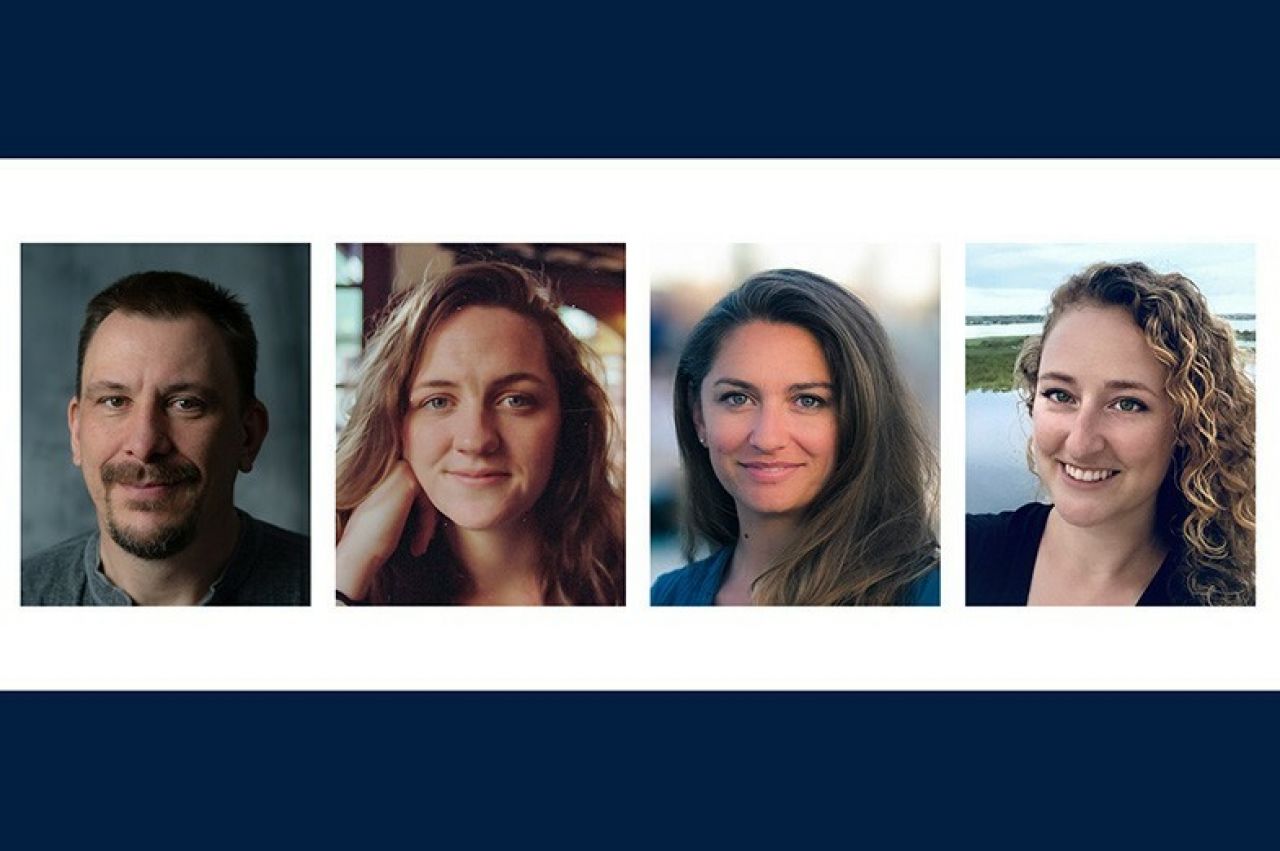July 31, 2020
Department of Landscape Architecture announces new hires for 2020-21

UNIVERSITY PARK, Pa. – The Department of Landscape Architecture within the Stuckeman School at Penn State is expanding for the 2020-21 academic year with the addition of two tenure-track faculty members and two assistant teaching professors.
Peter John Stempel will join the School as an associate professor while Zannah Mae Matson and Lauren Sosa have been named assistant teaching professors. All three will begin their appointments in fall 2020.
Leann Andrews will also move from her position as an assistant affiliate professor in the department to a full-time resident assistant professor in spring of 2021.
Peter John Stempel
Stempel comes to Penn State from the Rhode Island School of Design (RISD) where he was a Provost’s Fellow. In his role, he was responsible for developing an inclusive research-oriented curriculum and a division-wide Master of Design degree program. He completed his Ph.D. in marine affairs at the University of Rhode Island in 2018 and was named the recipient of the school’s Graduate Research and Scholarship Excellence Award in the Social Sciences and Humanities that same year. He previously earned B.F.A. and B.Arch. degrees from RISD. Stempel has held teaching positions at the Illinois Institute of Technology, Washington University in St. Louis, Chinese Academy of Art, the University of Utah and RISD. From 2007-2014, Stempel was the executive director of Form Tomorrow, a non-profit organization that was founded as “an antidote to polarizing fights over land use” in Washington County, Utah. He also has experience in the for-profit sector as the principal of Stempel Form Architects, a multidisciplinary design practice that was driven by a commitment to sustainability, from 1999-2007.Zannah Mae Matson
Stempel is the Department of Landscape Architecture’s first co-hire with the Institutes for Energy and the Environment at Penn State. In his role, he will focus his teaching and research on water-related resilience, build impactful collaborations with colleagues in the sciences, and develop a new online general education course in water-related resilience. Matson earned her Master of Landscape Architecture from the Harvard University Graduate School of Design in 2015 and her bachelor’s degree in environmental studies, with a minor in urban studies and a specialty in peace and conflict, from the University of Toronto (U of T) in 2011. Currently a human geography doctoral candidate in the Department of Geography and Planning at the U of T, her research focuses on the impact of prolonged counterinsurgency strategy and infrastructure development on the construction of landscapes. In professional practice, she has worked with Public Work and MassLBP. Most recently she served as a project manager at OPSYS Landscape Infrastructure Lab, where she was the lead exhibition designer for the Canada Pavilion at the 2016 Venice Biennale of Architecture. Matson has held teaching positions at U of T, the University of Oregon and the Ryerson University School of Urban and Regional Planning. In 2019-20 she served as the Design for Spatial Justice Fellow in Landscape Architecture at the University of Oregon. Matson’s focus at Penn State will be on social issues in landscape architecture, including the important redesign of the 15-year-old online general education course in social issues, LARCH 65: Built Environment and Culture.Lauren Sosa
Sosa is a 2007 Stuckeman School alumna, having earned her Bachelor of Landscape Architecture degree along with a minor in geography from Penn State. She went on to the University of Florida where she earned both her professional master’s degree – with a minor in urban and regional planning – and her doctorate in design, construction, and planning. Her thesis is titled “International development, environmental ethics and landscape architecture: Exploring socio-environmental ethics and power dynamics in the postcolonial landscape.” Sosa’s expertise revolves around community engagement, cultural competency, designing for marginalized communities, design communication, environmental ethics, postcolonial development discourse and sustainable development. She was awarded a Graduate School Doctoral Dissertation Award from the University of Florida in 2018 along with a teaching fellowship from 2012-2016. Her focus at Penn State will be on social issues in landscape architecture.Leann Andrews
Andrews comes to Penn State from the University of Washington (UW) where she earned her doctorate in the built environment, her master’s in landscape architecture and a graduate certificate in global health. She holds a bachelor’s degree in landscape architecture from Ohio State. Andrews served as a lecturer within the Department of Landscape Architecture at UW from 2013-2019, leading introductory to advanced technical and studio courses and managing projects in the Green Futures Research and Design Lab. She co-directs the InterACTION Labs, a transdisciplinary action research program in partnership with UW, three Peruvian universities and now Penn State, focused on understanding and improving human and ecological health through participatory design with an informal urban community living in floating houses on the Amazon River in Iquitos, Peru. She also comes from professional practice, having worked in several firms including URS (now AECOM), an interdisciplinary engineering firm in Cleveland, Ohio, and is now a director of the non-profit Traction. She is SEED-certified and a registered landscape architect in the state of Washington. Andrews is a member of numerous committees and organizations, including: the International Federation of Landscape Architects Advisory Circle to the executive committee; the Landscape Architecture Foundation Emeritus Board; the Center for Technological, Biomedical and Environmental Research in Peru; Architects without Borders, Seattle Chapter; and the National Council of Science, Technology and Technological Innovation in Peru. Andrews recently participated in a Landscape Architecture Foundation webinar that focused on how landscape architects can address environmental health including issues like the COVID-19 pandemic.